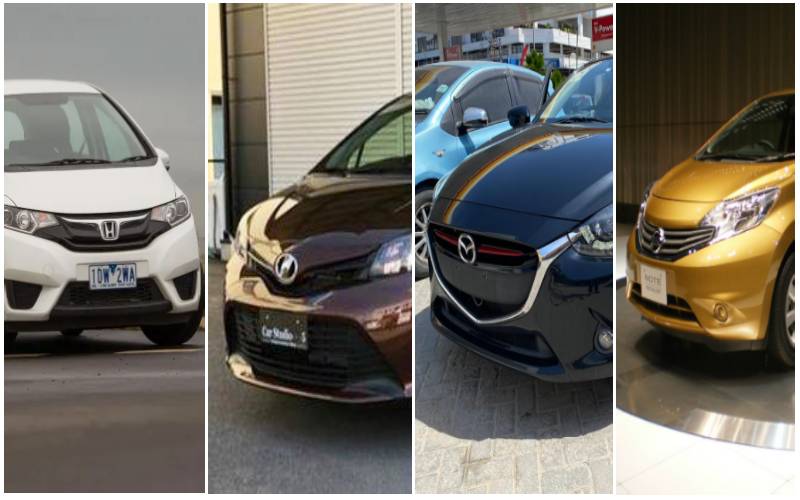×
The Standard e-Paper
Stay Informed, Even Offline

From left: Honda Fit, Toyota Vitz, Mazda Demio and Nissan Note. [Standard]
If you are shopping for your first car, and are earning an average monthly salary of between Sh70,000 and Sh150,000, chances are high you’d direct your eyes to a Toyota Vitz, Mazda Demio, Honda Fit, Nissan Note, Suzuki Swift or a Nissan March.